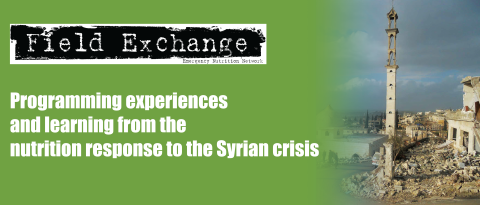The impact of the NiE regional training initiative: the Lebanon experience 2010-2014
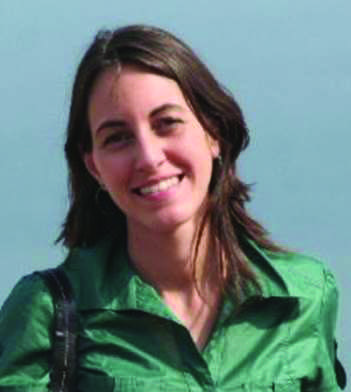 By Hala Ghattas (American University of Beirut), Linda Shaker Berbari (International Orthodox Christian Charities) & Omar Obeid (American University of Beirut).
By Hala Ghattas (American University of Beirut), Linda Shaker Berbari (International Orthodox Christian Charities) & Omar Obeid (American University of Beirut).
Hala Ghattas is Assistant Research Professor and Associate Director of the Centre for Research on Population and Health at the American University of Beirut’s Faculty of Health Sciences. In her previous role at the Department of Nutrition and Food Sciences, she co-organised the NiE regional training initiative.
Linda Shaker Berbari is Country Representative at International Orthodox Christian Charities (IOCC) Lebanon and nutrition focal point for IOCC.
Omar Obeid is Professor of Human Nutrition and Metabolism in the Department of Nutrition and Food Sciences at the American University of Beirut. He leads the NiE regional training initiative at AUB.
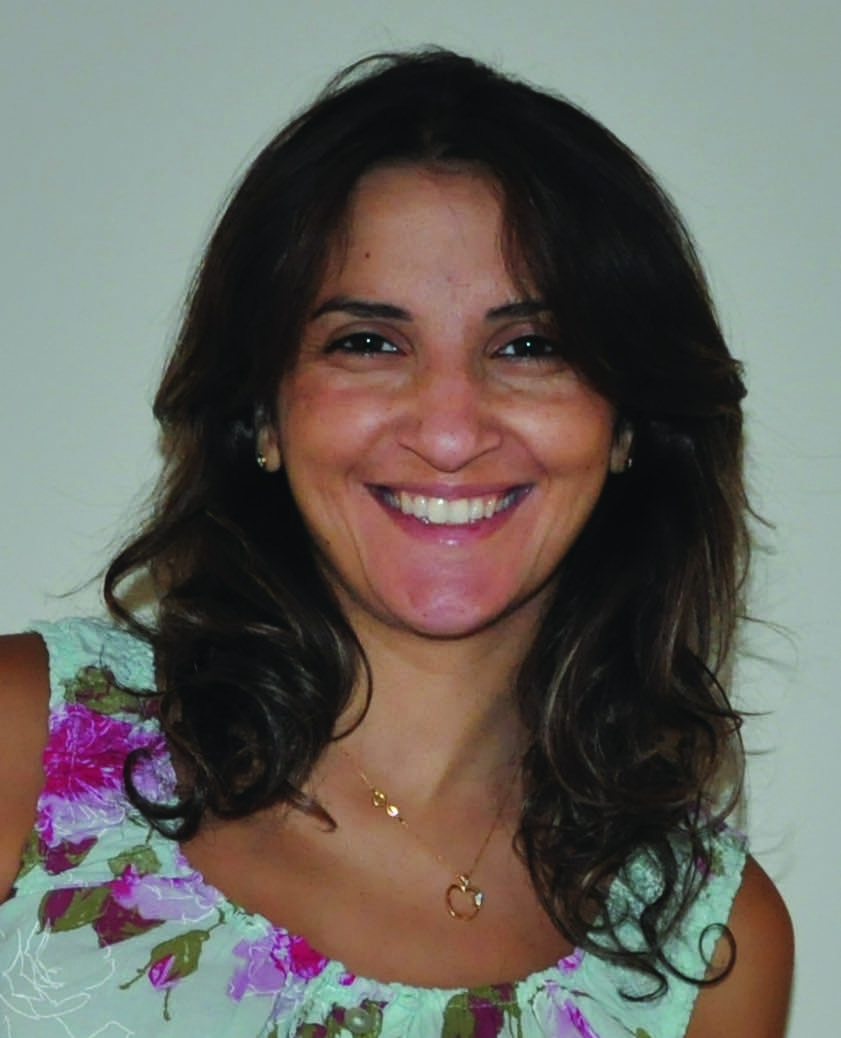 The Nutrition in Emergencies Regional Training Initiative (NIERTI)1 was set up in 2009 as a two year OFDA funded initiative by the Emergency Nutrition Network (ENN), implemented by the UCL Institute for Global Health (IGH). The initiative has continued as a collaboration of academic institutions and agencies to provide high quality training in emergency nutrition in the regions most affected by humanitarian disasters. In the Middle East, NIERTI is implemented by the Department of Nutrition and Food Sciences of the American University of Beirut (AUB)2.
The Nutrition in Emergencies Regional Training Initiative (NIERTI)1 was set up in 2009 as a two year OFDA funded initiative by the Emergency Nutrition Network (ENN), implemented by the UCL Institute for Global Health (IGH). The initiative has continued as a collaboration of academic institutions and agencies to provide high quality training in emergency nutrition in the regions most affected by humanitarian disasters. In the Middle East, NIERTI is implemented by the Department of Nutrition and Food Sciences of the American University of Beirut (AUB)2.
Establishing NIERTI at AUB
In response to the recognised gap in technical capacity in nutrition in humanitarian emergencies,, the NIERTI project, initiated in 2009, aimed to develop professional short courses in emergency nutrition in the three regions of the world most commonly affected by humanitarian emergencies3,4. Having faced varying humanitarian challenges over the last few decades, the Middle East region has some of the highest numbers of forcibly displaced persons worldwide5. The AUB has witnessed multiple conflicts and humanitarian crises on its doorstep.
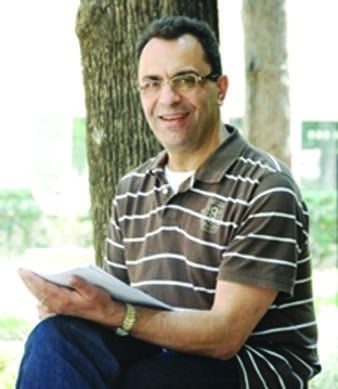 The Department of Nutrition and Food Sciences was approached by IGH to collaborate on the initiative at the grant-writing stage, and when funding was received in 2009, began planning the first NIERTI Lebanon course. The core course content was based on the Global Nutrition Cluster (GNC) endorsed Harmonised Training Package (HTP) on nutrition in emergencies6. In establishing the first pilot course, AUB and IGH discussed the particularities of the region that would affect the content of the courses taught in Lebanon. The importance of full training on Infant and Young Child Feeding in Emergencies (IYCF-E) was discussed given the various violations of the Code on the International Marketing of Breastmilk Substitutes that had occurred during the humanitarian response to the 2006 Israel-Lebanon war7. The relatively low occurrence and potential risk of acute malnutrition in the region led to the shortening of the sessions on the management of moderate and severe acute malnutrition. We considered adding sessions on the nutritional management of chronic diseases in emergencies given recent experience of high prevalence of chronic conditions, such as hypertension and diabetes, in Iraqi refugees in Jordan, Lebanon and Syria8. This topic was not added to the main NIERTI course due to timetable constraints but was discussed during the course with participants and added to the Arabic courses subsequently run by International Medical Corps (IMC) and IOCC (see later).
The Department of Nutrition and Food Sciences was approached by IGH to collaborate on the initiative at the grant-writing stage, and when funding was received in 2009, began planning the first NIERTI Lebanon course. The core course content was based on the Global Nutrition Cluster (GNC) endorsed Harmonised Training Package (HTP) on nutrition in emergencies6. In establishing the first pilot course, AUB and IGH discussed the particularities of the region that would affect the content of the courses taught in Lebanon. The importance of full training on Infant and Young Child Feeding in Emergencies (IYCF-E) was discussed given the various violations of the Code on the International Marketing of Breastmilk Substitutes that had occurred during the humanitarian response to the 2006 Israel-Lebanon war7. The relatively low occurrence and potential risk of acute malnutrition in the region led to the shortening of the sessions on the management of moderate and severe acute malnutrition. We considered adding sessions on the nutritional management of chronic diseases in emergencies given recent experience of high prevalence of chronic conditions, such as hypertension and diabetes, in Iraqi refugees in Jordan, Lebanon and Syria8. This topic was not added to the main NIERTI course due to timetable constraints but was discussed during the course with participants and added to the Arabic courses subsequently run by International Medical Corps (IMC) and IOCC (see later).
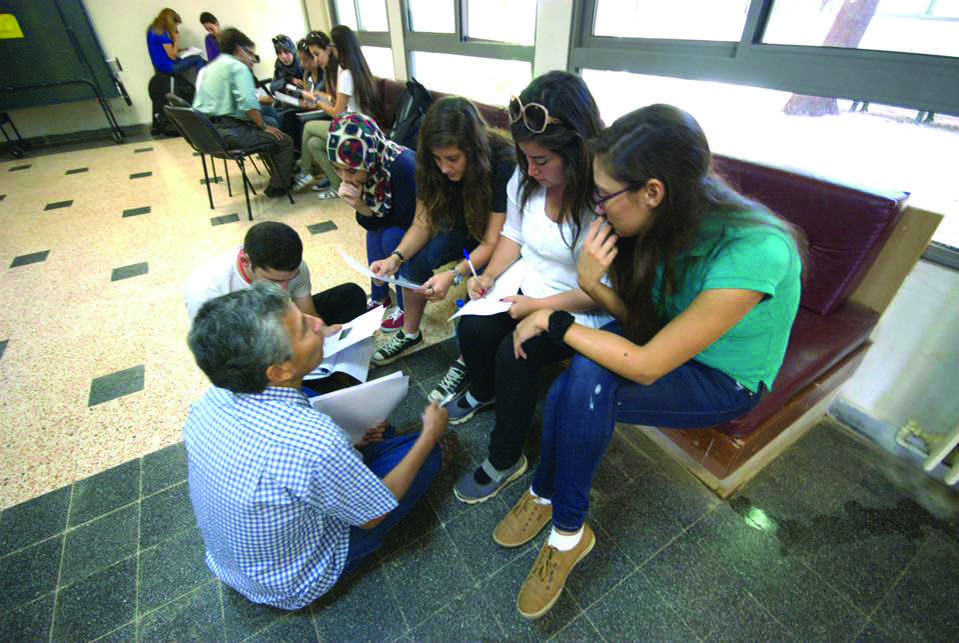 The pilot course ran in 2010 with 14 modules and was a shortened 6-day version of NIERTI (Table 1). It was largely attended by Lebanese participants who had been specifically targeted. The course was well evaluated and proved to have provided an opportunity for motivated individuals working in-country to meet and unify some of their objectives as regards NIE preparedness and IYCF-E (Box 1 highlights the personal experiences of Linda Shaker Berbari, now Country Director at IOCC, who attended the first course).
The pilot course ran in 2010 with 14 modules and was a shortened 6-day version of NIERTI (Table 1). It was largely attended by Lebanese participants who had been specifically targeted. The course was well evaluated and proved to have provided an opportunity for motivated individuals working in-country to meet and unify some of their objectives as regards NIE preparedness and IYCF-E (Box 1 highlights the personal experiences of Linda Shaker Berbari, now Country Director at IOCC, who attended the first course).
At the time, we had little idea of the potential value of this pilot course in building national capacity just in time for what is being termed the largest humanitarian crisis of our era9.
The dynamics of NIERTI in the response to ongoing crises in the region
Planning for the second NIERTI course began in 2011, amidst news of the escalating conflict in Syria. We recognised both the need to support regional capacity through a full 11-day NIERTI course10 targeting relatively senior national and international individual practitioners, and for training of local Arabic speaking health staff. The NIERTI 2010 had created momentum amongst motivated attendees, trainers and organisers of the course. Two of the participants managed to mobilise resources from their organisations (IOCC and World Vision Lebanon) to sponsor nine Lebanese participants to attend the full NIERTI 2012 course, including staff from the Ministry of Social Affairs, the Ministry of Agriculture, the Ministry of Economics, the Lebanese Red Cross and local NGOs This proved a critical time when the country was beginning to host a few hundred thousand Syrian refugees. NIERTI 2012 was attended by 24 participants from 15 different nationalities.
NIE training however, still needed to trickle down to health care workers on the ground and in order to do so, the materials needed to be translated into Arabic and examples needed to be contextualised. IOCC took the lead on this and with technical assistance from AUB and IMC, two additional 5-day Arabic-language NIE courses derived from the NIERTI materials were held for a group of health care providers working on the ground in Syria (who travelled to Lebanon for the training) and for Lebanese primary healthcare staff working with Syrian refugees. This was the basis and the start for many other training workshops implemented in Lebanon targeting health care providers and NGO staff. To-date, more than 250 health care providers have attended NIE and IYCF-E training in Arabic in Lebanon. The same trainers then travelled to Jordan where a similar 5-day NIE was held by IMC for providers of health care in the Za’atari camp11. For the latter, additional modules were developed in Arabic on Nutritional Management of Chronic Disease and Nutritional Needs of Pregnant and Lactating women.
The NIERTI proved to be invaluable in ensuring local preparedness to respond to the Syrian humanitarian crisis. It meant that organisations were ready to conduct nutritional assessment and develop nutrition programmes on the ground, as well as build the capacity of their staff in essential NIE concepts. A core group of individuals and organisations that had been part of the first Lebanon NIERTI (as participants, trainers and organisers) were focused on NIE, and ensured nutrition was discussed as part of the Health Working Group meetings now taking place as part of the Syria crisis response within Lebanon. Having learned from the 2006 experience, and due to the mobilisation of actors from ministries as part of NIERTI, this core group was quick to act on issuing a Joint Statement on Infant and Young Child Feeding in Emergencies (IYCF-E), which was endorsed by various governmental entities, NGOs and academic institutions. This enabled the avoidance of mistakes previously encountered regarding infant feeding, such as the untargeted distribution of donated baby food, infant formula and bottles, as well as one-off infant formula samples to hospitals, municipalities and directly to internally displaced populations.
In 2014, AUB was approached by UNICEF to conduct further NIE training for the region. A 9-day adapted NIERTI was held for participants working in the Syria crisis response, and was sponsored by UNICEF.
The future of NIERTI – Lebanon
The course and the materials developed for NIERTI have proved to be adaptable to various training needs over the past few years. It has managed to address the needs of different audiences, in both English and Arabic, with varying level of detail and modules.
The model has proven to be cost-effective and sustainable as long as participation fees have been able to cover the costs of international trainers and experts able to continuously update materials. In Lebanon, sponsorship of participant fees by various agencies has ensured the ability of local staff to attend these courses. The modular format lends itself to further adaptability and could be integrated into the teaching programme at the AUB to ensure sustainability post-emergency, when agencies’ priorities as regards funding participants may shift.
One of the challenges that will need to be addressed as the NIERTI continues in its current form, is obtaining funding for a more comprehensive update of the materials; currently we rely on expert trainers to do this year-to-year. We also struggle with defining the optimal length of the training course and have to balance the need to ensure competence is achieved with the amount of time agencies are willing to let their staff attend training. We are therefore considering linking NIERTI with other courses that could be taken online or in person as pre-requisites; one such option is the Building a Better Response (BBR) initiative developed by IMC, Concern and the Harvard Humanitarian Initiative12. Others could involve online courses in basic concepts of nutrition.
Lebanon now finds itself with the highest concentration of refugees per capita worldwide. Although rates of acute malnutrition in Syrian refugees remain low, in a population where 75% of households are food insecure13, ensuring capacity for programmes that contribute to the continuous prevention of malnutrition will be essential, particularly in the context of the funding shortfall for the Syria response appeal14.
For more information, contact: Hala Ghattas, email: hg15@aub.edu.lb
Table 1: Length, participation and content of the NIERTI-Lebanon courses
Year |
2010 |
2012 |
2014 |
|
Number of days |
6 |
12 |
9 |
|
Total number of participants |
17 |
24 |
35 |
|
Number of Lebanese participants |
13 |
10 |
25 |
|
Number of regional participants |
3 |
3 |
7 |
|
Number of international participants |
1 |
11 |
3 |
Modules covered |
Introduction to NIE |
Introduction to NIE |
Introduction to NIE |
|
|
Causes of malnutrition |
Causes of malnutrition |
Causes of malnutrition |
|
|
Humanitarian system |
Humanitarian system |
Humanitarian system |
|
|
Humanitarian standards and M&E |
Humanitarian standards and M&E |
- |
|
|
- |
Humanitarian funding |
- |
|
|
Rapid assessments |
Rapid assessments |
Rapid assessments |
|
|
- |
Surveillance and early warning |
Surveillance and early warning |
|
|
Nutrition surveys |
Nutrition surveys |
Nutrition surveys |
|
|
Food assistance |
Food assistance |
Food assistance |
|
|
Micronutrient interventions |
Micronutrient interventions |
Micronutrient interventions |
|
|
Management of severe acute malnutrition |
Management of severe acute malnutrition |
Management of severe acute malnutrition |
|
|
Management of moderate acute malnutrition |
Management of moderate acute malnutrition |
Management of moderate acute malnutrition |
|
|
- |
CMAM challenges and opportunities |
- |
|
|
- |
Food security and livelihoods |
Food security and livelihoods |
|
|
Infant feeding in emergencies |
Infant feeding in emergencies |
Infant feeding in emergencies |
|
|
Emergency preparedness |
Emergency preparedness |
Emergency preparedness |
|
|
- |
Nutrition survey exercise |
- |
|
|
Emergency simulation |
Emergency simulation |
Emergency simulation |
|
|
Professional development |
Professional development |
- |
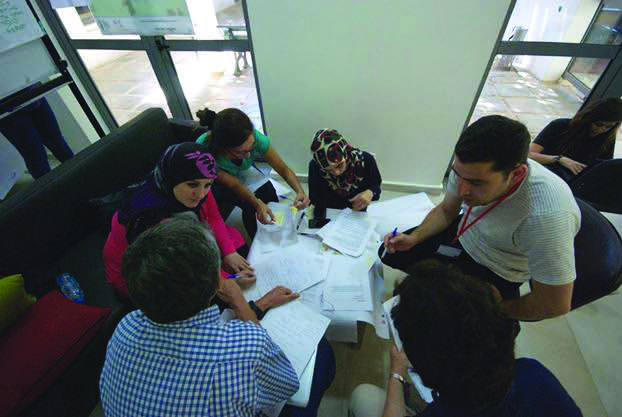 Box 1: The-knock-on effects of the American University of Beirut NIERTI; a personal experience
Box 1: The-knock-on effects of the American University of Beirut NIERTI; a personal experience
By Linda Shaker Berbari
Having learned about the NIERTI workshop from a colleague at AUB, I decided to attend the first 6-day course in September 2010. I felt participating in the training would be ideal for me to contribute to emergency preparedness within my country, which has had its fair share of emergencies. I did not have many expectations, except that 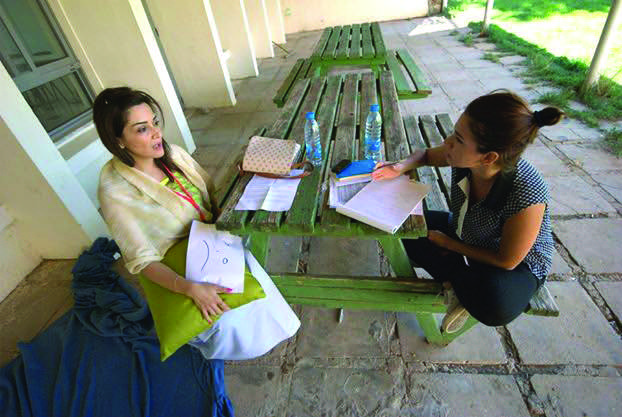 being a strong breastfeeding advocate, I was looking forward to hearing about infant and young child feeding in emergencies (IYCF-E). I funded myself to attend as my employer, IOCC, did not have the resources. A mother of two young children at the time, I juggled what was necessary to make it happen and funded myself to attend. The NIERTI gave me the “how” and the “what” needed to proceed my personal ambition; to help those most in need in the most difficult situations. During the last day of the training, we wrote our professional development plan. My plan included three objectives: to contribute to a National Emergency Nutrition Preparedness Plan, to improve infant and young child feeding (IYCF) practices in Lebanon, and to pursue research on IYCF-E. I’ve made progress on all three areas and have maintained a close engagement with the NIERTI and AUB through my career path.
being a strong breastfeeding advocate, I was looking forward to hearing about infant and young child feeding in emergencies (IYCF-E). I funded myself to attend as my employer, IOCC, did not have the resources. A mother of two young children at the time, I juggled what was necessary to make it happen and funded myself to attend. The NIERTI gave me the “how” and the “what” needed to proceed my personal ambition; to help those most in need in the most difficult situations. During the last day of the training, we wrote our professional development plan. My plan included three objectives: to contribute to a National Emergency Nutrition Preparedness Plan, to improve infant and young child feeding (IYCF) practices in Lebanon, and to pursue research on IYCF-E. I’ve made progress on all three areas and have maintained a close engagement with the NIERTI and AUB through my career path.
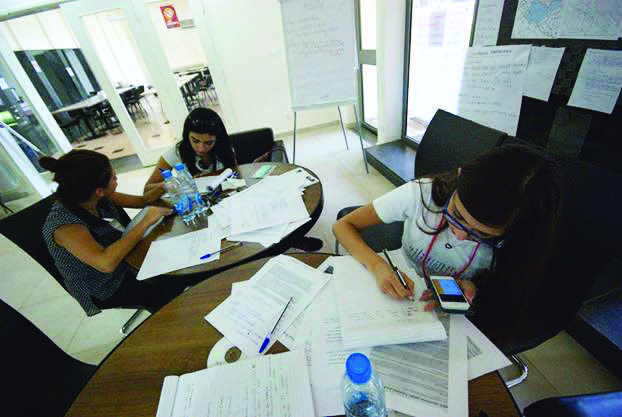 Back in 2010, many of IOCC programmes were not related to nutrition but fresh from the NIERTI, together with colleagues, we devised a strategic plan that included NIE and IYCF-E. We started small; in 2011, IOCC partnered with World Vision Lebanon who was also starting work on maternal and child health. We incorporated NIE and IYCF-E workshops within existing activities targeting grassroots organisations, and contributed to the National Programme on IYCF15 I helped secure resources from IOCC to sponsor national participants in the 2012 NIERTI course (see main article). Many participants who attended the 2012 training continued to work on nutrition and two hold key positions within the nutrition programme at IOCC. I was also instrumental in securing funds and delivering on the adapted, translated NIERTI course in Lebanon and in delivering the subsequent NIE and IYCF-E workshops by IOCC and partners within Lebanon. The acute malnutrition and IYCF-E programme currently implemented by IOCC was the first nutrition programme to be implemented in Lebanon in response to the Syria crisis; it owes a lot to the NIERTI in setting the stage for IOCC’s nutrition programming. The third NIERTI course was conducted in June 2014 and included staff from different NGOs and UN agencies. IOCC shared its experience within the training including lessons learned, challenges, and future plans; incorporating such contextual experience is of great value.
Back in 2010, many of IOCC programmes were not related to nutrition but fresh from the NIERTI, together with colleagues, we devised a strategic plan that included NIE and IYCF-E. We started small; in 2011, IOCC partnered with World Vision Lebanon who was also starting work on maternal and child health. We incorporated NIE and IYCF-E workshops within existing activities targeting grassroots organisations, and contributed to the National Programme on IYCF15 I helped secure resources from IOCC to sponsor national participants in the 2012 NIERTI course (see main article). Many participants who attended the 2012 training continued to work on nutrition and two hold key positions within the nutrition programme at IOCC. I was also instrumental in securing funds and delivering on the adapted, translated NIERTI course in Lebanon and in delivering the subsequent NIE and IYCF-E workshops by IOCC and partners within Lebanon. The acute malnutrition and IYCF-E programme currently implemented by IOCC was the first nutrition programme to be implemented in Lebanon in response to the Syria crisis; it owes a lot to the NIERTI in setting the stage for IOCC’s nutrition programming. The third NIERTI course was conducted in June 2014 and included staff from different NGOs and UN agencies. IOCC shared its experience within the training including lessons learned, challenges, and future plans; incorporating such contextual experience is of great value.
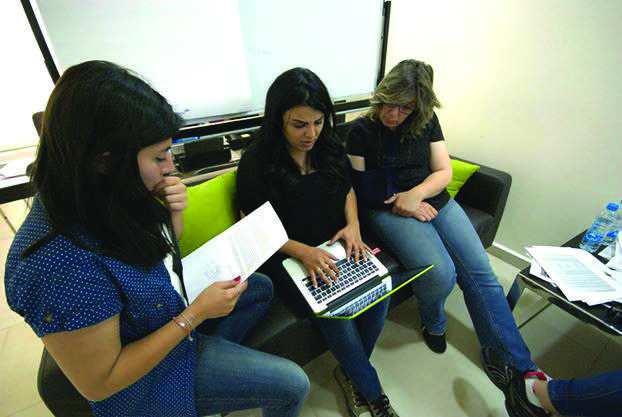 I am currently pursuing my PhD at the University of Dundee in Scotland with a focus on IYCF-E policies. I am more determined than ever to advance with nutrition in emergencies and IYCF-E interventions, all thanks to a 6-day training course that I attended in 2010.
I am currently pursuing my PhD at the University of Dundee in Scotland with a focus on IYCF-E policies. I am more determined than ever to advance with nutrition in emergencies and IYCF-E interventions, all thanks to a 6-day training course that I attended in 2010.
1 Nutrition in Emergencies Regional Training http://www.nietraining.net/
2 American University of Beirut. http://www.aub.edu.lb/
3 Adinolfi C, Bassiouni DS, Lauritzsen HF et al. (2005) Humanitarian Response Review. New York and Geneva: UN
4 Gostelow L (2007). Capacity development for nutrition in emergencies: beginning to synthesise experiences and insights. NutritionWorks / IASC Global Nutrition Cluster.
5 United Nations Office of the High Commissioner for Refugees (2013) War’s Human Cost, Global Trends Report 2013. http://www.unhcr.org/5399a14f9.html
6 IASC Global Nutrition Cluster’s Harmonised Training Package http://www.unscn.org/en/gnc_htp/ and http://www.ennonline.net/resources/htpversion2
7Maclaine A and Corbett M (2006). Infant Feeding in Emergencies: Experiences from Indonesia and Lebanon. Field Exchange 29, December 2006. p2. www.ennonline.net/fex/29/infantfeeding
8 Mateen F, Carone M, Al-Saedy H, Nyce S, Ghosn J, Mutuerandu T, Black RE. (2012). Medical conditions among Iraqi refugees in Jordan: data from the United Nations Refugee Assistance Information System. Bulletin of the World Health Organization; 90: 444-451.
9 UNHCR (2014) Syria Emergency Appeal http://donate.unhcr.org/international/syria
10Perry A, Meeker J, Seal A. (2012). Experiences of the Nutrition in Emergencies Regional Training Initiative. Field Exchange 42, January 2012. p50. www.ennonline.net/fex/42/experiences
11See also Abla C, 2014. Experiences on Nutrition in Emergencies Training for Syrian refugees response in Jordan. Field Exchange 48.
12 Building a Better Response http://www.buildingabetterresponse.org/
13 WFP(2014). Preliminary results of the Vulnerability Assessment for Syrian Refugees (VASyr).
14 UNHCR http://data.unhcr.org/syrianrefugees/regional.php
15 Shaker-Berbari et al (2014). Institutionalising acute malnutrition treatment in Lebanon. Field Exchange 48 p17.


